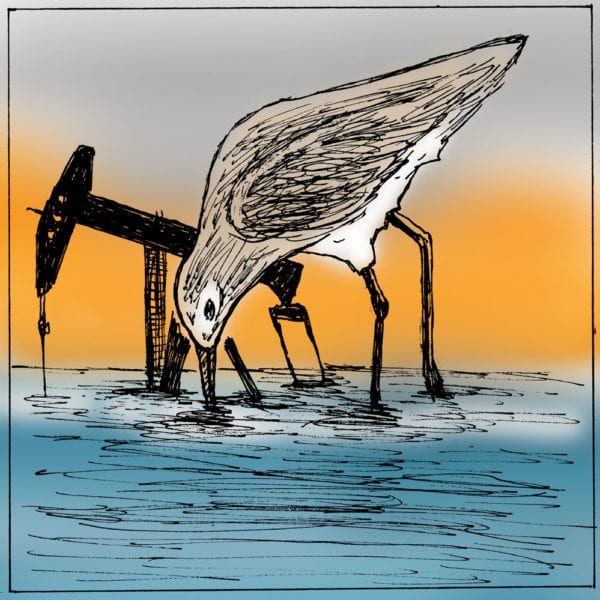
Oil drilling in the Arctic will spoil the coastal plains migratory birds call home
Just how far away the Arctic National Wildlife Refuge is from Maine depends on your perspective. To a human, the journey of several thousand miles to this pristine refuge in northeast Alaska is an incredible distance, reserved for a once-in-a-lifetime adventuresome trek.
That’s not the case for many birds. To whimbrels, short-billed dowitchers and semipalmated sandpipers – shorebird species that nest in the Arctic refuge before migrating through our state – Maine’s coastal mudflats and beaches are simply a stopover, a place to fatten up before continuing their annual migration from the Arctic refuge to South America.
These shorebirds have benefited greatly from Sen. Susan Collins’ past work to protect the Arctic refuge, and wildlife enthusiasts throughout Maine are thankful for her efforts. Today, in the face of a budget proposal that would open up the Arctic refuge for oil drilling, we need her leadership more than ever. We are counting on Collins to remove from the Senate tax bill a provision that would allow destructive oil drilling in the refuge.
The Arctic refuge, among the wildest and most unspoiled places on earth, provides habitat for abundant and diverse wildlife. The coastal plain of the refuge, where oil drilling is proposed, is its biological heart. The 1.5-million-acre region hosts nearly 200 species of birds. Some of these species pass through Maine. Others, such as the long-tailed duck and American tree sparrow, nest and fledge their young in the Arctic and spend the winter in our state.
Drilling would irreversibly damage this untouched landscape through a spider web of infrastructure and the very real threat of regular oil spills. On average, there is nearly one spill a day on the North Slope of Alaska. The refuge is too biologically sensitive to become a part of this statistic. An oil spill would devastate the coastal plain’s highly sensitive lagoons, wetlands and tundra.
Even with new technology like horizontal drills, drilling for oil leaves a sprawling industrial footprint incompatible with quality wildlife habitat. Research has shown that caribou and other wildlife avoid pipelines and other infrastructure associated with drilling. This poses a significant threat to the nearly 200,000 caribou that raise their young in the refuge. In turn, these caribou have sustained the native Gwich’in people’s way of life for thousands of years.
As America’s largest wildlife refuge, and arguably the crown jewel of the National Wildlife Refuge System, the Arctic refuge inspires and draws interest to Maine’s own Rachel Carson, Sunkhaze Meadows, Coastal Islands and Moosehorn refuges in Maine. To damage this one-of-a-kind landscape in search of short-sighted economic interests would be a blow to the entire refuge system.
What’s more, those short-sighted economic interests are a mirage. Oil and gas prices are very low. The proposed high lease rates in the refuge cannot compete with abundant natural gas exploration and oil and gas development in other places. The National Petroleum Reserve in Alaska, a huge tract of federal land in the state, includes millions of acres allocated for energy development. That petroleum reserve has existing infrastructure and fewer wildlife and habitat conflicts than the Arctic refuge.
Since the refuge was originally set aside for protection in 1960 by Republican President Dwight Eisenhower, Congress has stood firm with bipartisan support to protect this unparalleled landscape by prohibiting oil and gas development. Collins has been a reliable, consistent leader working against efforts to disturb this fragile, critical habitat.
Maine’s people and our avian Arctic visitors need the senator to stay strong and reject any proposal that threatens the incredible natural wonders of the Arctic National Wildlife Refuge.
Susan Gallo is wildlife biologist with Maine Audubon.
The original post can be viewed on the Bangor Daily News website.
Top image: George Danby | BDN
